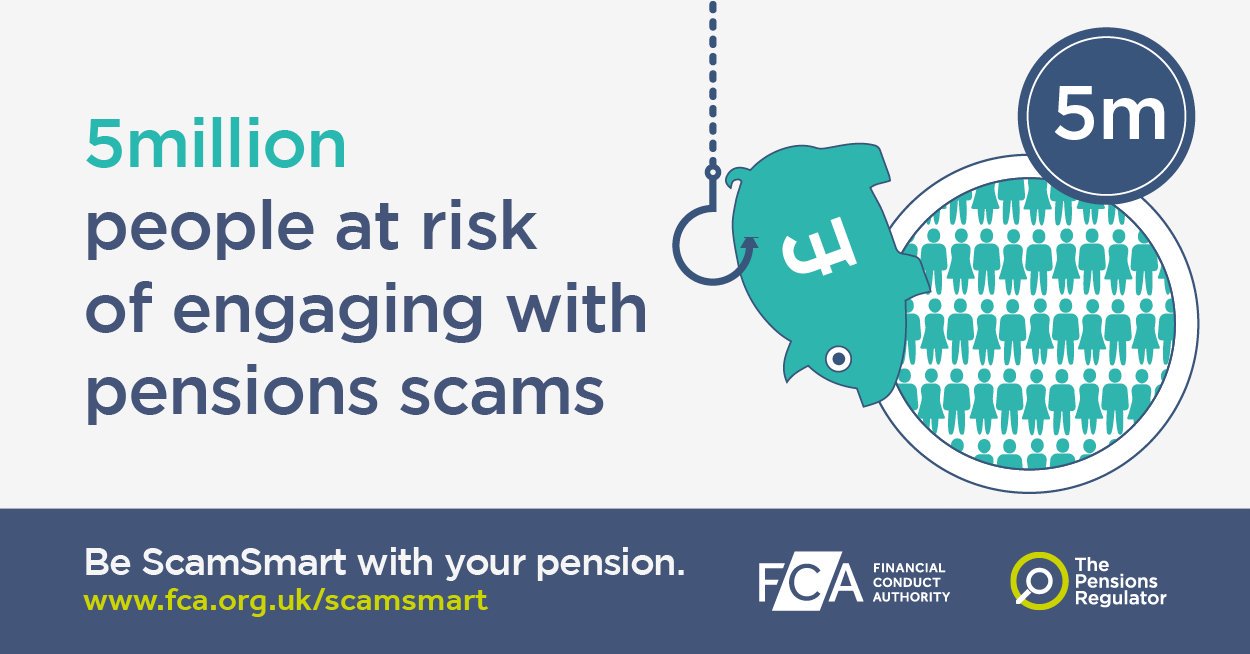The pensions industry is being called on to raise the alarm over suspected scams following a concerning long-term drop in reporting.

Data from the national fraud and cybercrime reporting centre, Action Fraud, shows a steady fall in pension scam reports from 1,788 in 2014 to 358 in 2020 – an almost 80% reduction.
In January, The Pensions Regulator (TPR) warned the Work and Pensions Committee investment fraud, where the source of funds may derive from pension assets, could be on the increase. However, a lack of data may be hiding the true picture of the pension scams landscape.
While there has been a slight rise in reporting so far in 2021, TPR is calling on industry to be on high alert for criminal or suspicious activity and to sign up to its Pledge campaign to help combat pension scams.
So far, more than 200 organisations have signed up to the Pledge campaign, which is designed in part to encourage better reporting. The campaign follows changes the regulator has made to protect savers in light of COVID-19 including the introduction of new scams training for all trustees, (as a new module of the Trustee toolkit), and a ‘warning letter’ for all those looking to transfer out of a defined benefit pension.
Action Fraud figures show pension scam losses can range from under £1,000 up to £500,000. But the true scale of the amount lost to pension scams, and the number of victims, is likely to be much higher as victims often don’t realise they have been tricked until many years later. Once the money is gone, it is often gone for good.
And with the COVID-19 pandemic impacting many peoples’ finances – despite the unprecedented government support – there are fears scammers will use this to their advantage to steal hard-earned cash from savers.
Nicola Parish, The Pensions Regulator’s Executive Director of Frontline Regulation, said: “To fight the scourge of pension scams and keep up with scammers’ ever-changing tactics, we need a clear understanding of the size of the problem and good-quality intelligence.
“While we’ve seen no evidence of a significant increase in pension scams during COVID-19, we believe many across the industry, including trustees, pension providers and administrators, are not reporting suspected scams at a time when the pandemic could leave savers more vulnerable.
“It’s vital the pensions industry reports suspected scams via Action Fraud, or by calling 101 in Scotland, which is why we made reporting one of the six principles in our Pledge to Combat Pension Scams campaign.
“We are working with Action Fraud and industry to ensure the reporting process is clear, understood and effective.”
Pauline Smith, Head of Action Fraud, said: “It’s vital that instances of pension fraud and attempted scams are reported to Action Fraud. Every report helps police get that bit closer to the people committing these awful crimes. Information provided in reports to Action Fraud also allows for quick-time disruption activity to take place, such as the removal of fraudulent websites and the blocking of telephone numbers being used to commit fraud, which helps prevent more people falling victim.”
Margaret Snowdon, Chair of the Pensions Scams Industry Group (PSIG), said: “There are lots of reasons for under-reporting. Schemes may not report because they think it is a hassle, they are not certain something is a scam, or they are concerned the report won’t be dealt with, but reports to Action Fraud are fundamental if scammers are going to be caught out by law enforcement.
“If we have better information on the scale of pension scams and the methods used, we are more likely to get the resources and attention we need to combat scams more effectively. The pensions industry must step up and improve reporting or it will make defeating scammers all the more difficult.
“The Pledge to Combat Pension Scams rightly requires schemes to commit to reporting suspected scams.”
Pension scams are devastating. Scammers often approach people about a pensions or investment opportunity out of the blue with genuine sounding investments. They use sophisticated techniques to win trust before stealing people’s hard-earned retirement cash and can leave victims facing retirement with limited income and little or no opportunity to build back their savings.



